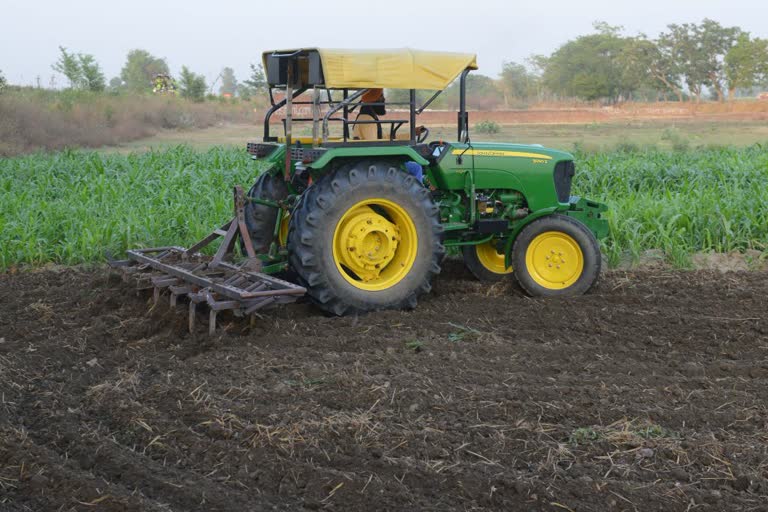Hyderabad: Tractor sales in India in the last few months have managed to buck the overall slowdown in the auto industry that worsened after the coronavirus outbreak.
Data shows that new tractor registrations were up over 37% year-on-year in July after rising 10.9% in June.
While the popular narrative is that the recovery in tractor sales reflect how India’s agricultural economy has remained unfazed by the pandemic, there is a lot more to this trend than meets the eye.
There is no denying the fact that prospects of a normal monsoon this year and a good rabi crop harvest have driven tractor sales in the past couple of months.
But experts think using tractor sales data to argue that rural India is prospering is stretching the point for various reasons.
1. Pent-up demand
Rising tractor sales may just be an indicator of some pent-up demand.
Vivek Kaul, a seasoned commentator on Indian economics and author of the book ‘Bad Money’, told ETV Bharat: “The period between April and June is the traditional season for tractor sales. Sales during this period have fallen 13.7% in 2020 compared with last year. Hence, high sales in the last two months might be nothing more than pent-up demand given the lockdown in April and May.”
Auto industry veteran Arun Malhotra also points that the growth in tractor sales this year have come on a low base.
“Even though sales are good, it is not a record year. Last year (2019-20) was a bad year for tractors as sales were down over 10% from the previous year’s level. This year’s numbers are still lower than those in 2018-19,” he noted.
2. Only a rich farmer can buy
The second thing to keep in mind is tractor sales data is a mirror to a very small section of the farming community and by no means reflect the state of marginal farmers.
“A jump in tractor sales mainly indicates that big farmers are doing well. Buying a tractor with an engine power of more than 30 horsepower costs Rs 5 lakh or more. It is difficult for an average farmer to be able to buy a tractor worth that amount. Therefore, rising tractor sales should not be seen as an indicator of recovery in the overall agricultural economy,” said Kaul.
3. Usage in non-agri operations
The third argument for tractor sales not being an accurate indicator of a booming agricultural economy is that many other factors, besides growth in farmers’ income, have propped up sales.
Malhotra draws attention to the rising supplementation of tractor usage in non-agri operations like haulage for construction activities etc. “Tractors are now being increasingly used for commercial activities as they prove to be more cost-effective since the government doesn’t charge any excise duty or road registration charges on their sale. So this has also pushed up sales,” he said.
Also, Malhotra said the tractor industry has been the fastest auto segment to gear up production to pre-Covid levels as the supply chain for tractor production is quite localized and less complex compared with two-wheelers, three-wheelers or passenger vehicles.
Read more:Cabinet okays single entrance exam for central govt jobs. Know how it works
“The quick ramp-up in production has reflected on the sales numbers as well, which was not the case for other auto segments,” he said.
“Also, the number of players in the tractor industry is constantly going up, since every player in the tractor industry is making money. The entry of smaller players like Preet, VST Tillers, Captain Tractors etc have played a significant role in higher sales,” said Malhotra.
But, all said and done, the positive momentum in tractor sales is likely to continue in the near term.
Ashish Harsharaj Kale, president of the Federation of Automobile Dealers Associations (FADA), the apex national body of automobile retail industry in India, had earlier this month said: “The full-year outlook for the auto sector continues to remain negative with a projected de-growth in retail sales in the range of 15-35% across various segments, except tractors which looks set to clock a positive annual growth.”
(ETV Bharat Report)
